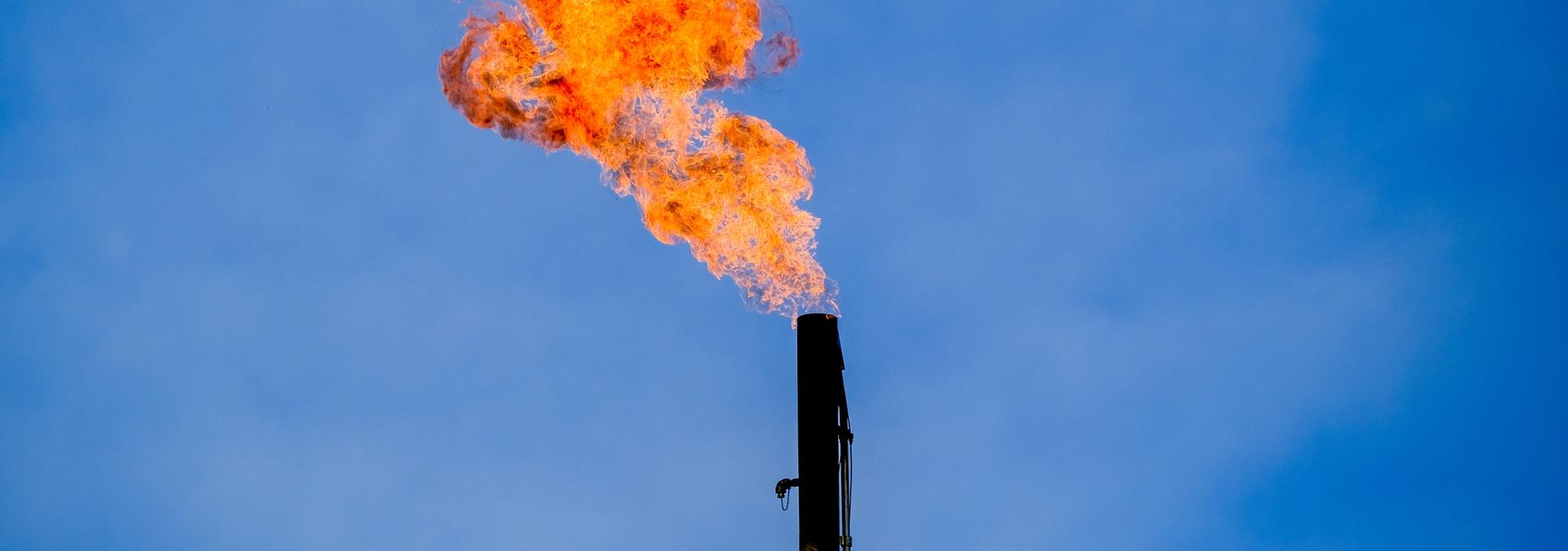
What is the affirmative defense?
The affirmative defense allows corporate polluters to avoid accountability through the legal system and continues to exact serious impacts on Texans. Photo: Julie Dermansky.
The affirmative defense is a common legal argument. It allows that the law was broken, but that it was for a good reason.
A parent rushing a child to the emergency room to receive treatment for a severe asthma attack could make an affirmative defense to have the speeding ticket thrown out. But, in Texas, corporate polluters use this same argument to avoid fines 97 percent of the time from the state environmental agency when they release into the air the kinds of emissions that can cause asthma attacks.
Yes, these polluters tell the Texas Commission on Environmental Quality, we had an “emissions event” — but we couldn’t have foreseen it, or it wasn’t that bad, or the operator did everything he could to stop it, and so on. The affirmative defense "is a giant loophole,” says Ilan Levin, associate director with the Environmental Integrity Project. “The state of Texas gives a free pass to anyone who just files their reports on time.”
How does this loophole impact Houston?
Illegal air pollution was released by a private company somewhere in Texas every single day in 2019, a Environment Texas report found. In Houston, it was 357 days. Because of the affirmative defense, TCEQ issued fines for about 3 percent of those events, a number that has stayed that low for a decade.
This tends to be what happens: TCEQ staff read hundreds of self-reports submitted electronically by corporate polluters, checking to see that the boxes are checked — and then they move on, closing the file without following up to conduct inspections at the facility or reviewing air monitoring data. “Generally, no one calls [the polluters] on it,” says Luke Metzger, executive director of Environment Texas.
In a 2014 deposition in a lawsuit filed by his organization and the Sierra Club against Exxon Mobil, an employee said in a Houston courtroom that, no matter what, he made the affirmative defense every time.
And it’s still better than past policies. Until 1999, corporate polluters who allowed an “upset,” whether because of an equipment failure or shutdown ahead of a hurricane or power outage, were exempt from any penalties at all in Texas. But the affirmative defense remains “a shield” for them, Levin says.
It allows polluters to avoid accountability through the legal system and continues to exact serious impacts on Texans. Illegal air pollution, along with the everyday emissions from transportation and industrial facilities like concrete batch plants and salvage yards, contributes to asthma, heart disease, cancer and premature death.
It also exacerbates inequality. Lacking the full protection of government agencies and failed by housing and development patterns, Black and Latino communities tend to bear the highest burden, targeted by polluting facilities and dealing with less access historically to high-quality health care, supermarkets, pharmacies and other necessities. Residents in Manchester, a mostly Latino neighborhood in Houston near the Ship Channel where Valero operates a refinery, are 22 percent more likely than other Houstonians to develop cancer. Black children in Houston are three times as likely to have asthma than white children.
The persistence of the affirmative defense fails to protect Texans’ health. And it fails the state. Illegal air pollution also causes hundreds of millions of dollars in economic damages. Texas is leaving behind an estimated $2.3 billion in unclaimed fines every year, all while lawmakers face a nearly $1 billion budget deficit in the 87th state legislative session.
What can be done?
“We need to improve what's in the law now in Texas,” Levin says. “Repealing the affirmative defense takes away this unnecessary gift that industry has, and it doesn't take any power away from the states or the regulators.”
This session, State Senator Cesar Blanco filed a bill that would repeal it. (A similar bill he filed in the house last session stalled.) Citing an MIT study that concluded that 210,000 Americans die prematurely from air pollution every year, Sen. Blanco says, “It’s a public health issue, and it’s an environmental justice issue.”
Repealing the affirmative defense, he says, “is a common-sense solution to holding bad actors accountable and improving health.”
Still, even if the affirmative defense is not repealed now in Texas, lawmakers are pursuing other strategies to protect Texans and make polluters pay.
Representative Erin Zwiener has filed House Bill 1820, which would require more costly penalties and lead to the revocation of permits in the event of chemical disasters, like the Watson Grinding and Manufacturing explosion in Houston that killed three people. TCEQ’s penalties average out to be one penny for every pound of illegal air pollution. Her bill would require that to be raised to $1.
Metzger says that also requiring mandatory penalties that override any “enforcement discretion,” a euphemism that often translates to a failure to protect people, not profits, could be just as impactful. “If corporate polluters face the threat of real consequences, they have an economic incentive to invest in maintenance and the other steps necessary to avoid emissions events,” he says. “They would recognize they’re more liable now and can't just continue on with business as usual polluting with impunity.”
West is a writer with Environmental Defense Fund. You can follow him on Twitter @allynwest.
STAY UP TO DATE
The quality of our newsletter is considered satisfactory and poses little or no risk.
SUBSCRIBE

